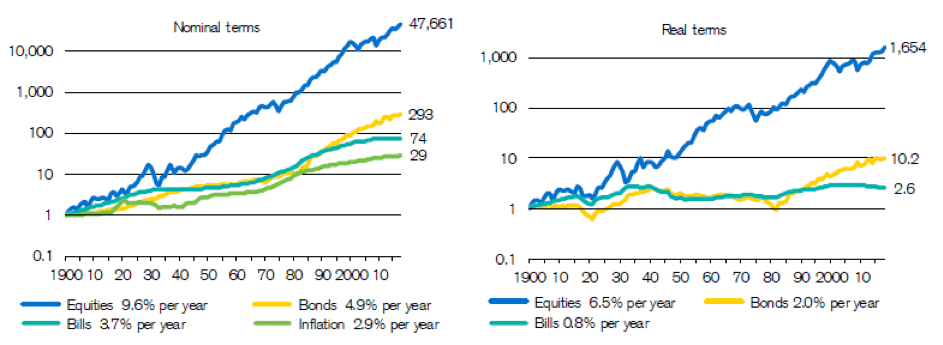The superiority of the stock investment
December 20, 2018 | Digital Asset Management
In the long run, returns on equities outperform the returns on all forms of investment such as bonds, cash, precious metals, or even real estate by far.
The real performance of the investments

Why the yield on real estate decreases
The risks of real estate investments
What you can still learn from a real estate investor
Shares vs. precious metals
Estably is the first Liechtenstein-based digital asset management firm to offer world-class asset management through a blend of technology and human investment expertise. Thanks to the portfolio managers’ many years of experience in the field of value investing, the aim is to achieve above-average returns – starting at an investment sum of € 20,000. The aim is to make professional asset management, which was previously possible exclusively for major investors, accessible to everyone – in a convenient, transparent and profitable way.
You might still like these posts
Finance Blog

Half-year commentary 2023: From crisis to recovery
After a very turbulent 2022, the first half of 2023 saw a stabilisation in the capital markets, with strong recoveries in certain sectors.

The underestimated danger of financial repression
In troubled times, investors are looking for security for their assets. But what does “security” mean?

Is now the right time to invest?
Catch the perfect moment and beat the market – the supposed dream of every investor. In practice, however, this rarely succeeds, because: nobody can look into the future and predict when exactly the markets will rise or fall again.



